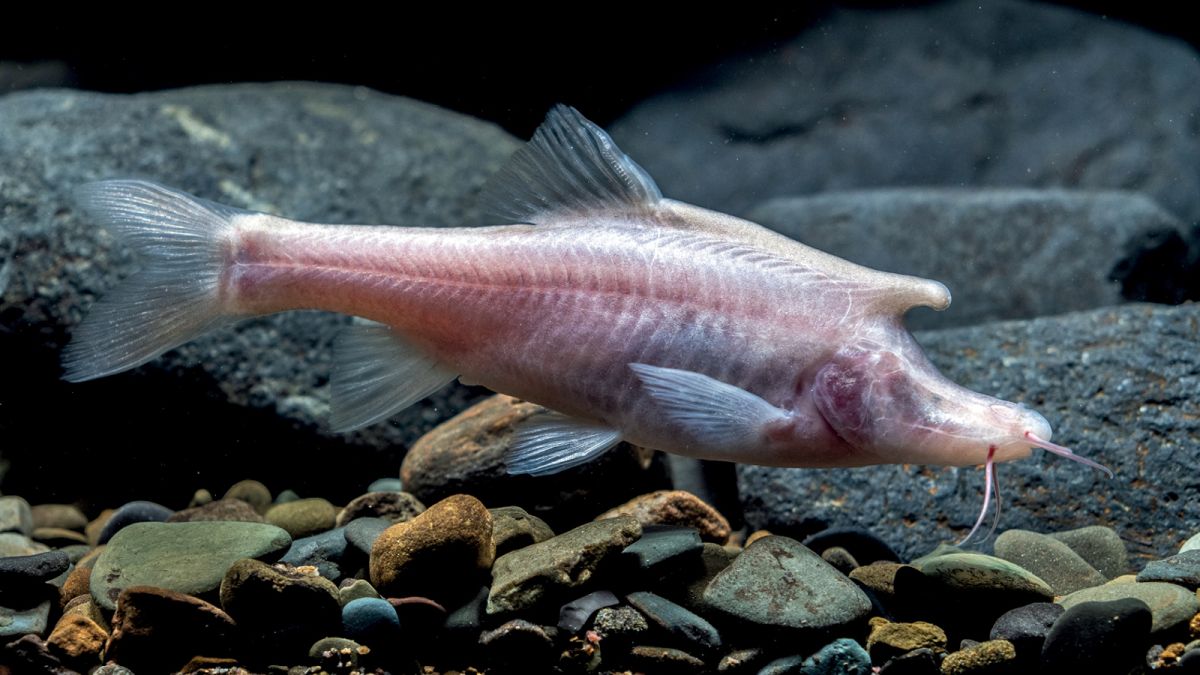
Phys.Org

#StudyExplores #TunableDragResponse Between Conductor & Superconductor

Lifehacker.com

#Meteorite #Rocks #Identify
This is a meteorite rock, which is a type of rock that has been formed from the debris of a meteoroid or asteroid that has entered the Earth's atmosphere and landed on the surface. It is usually composed of iron and nickel, and can be identified by its characteristic shape and texture. Meteorites are valuable to scientists as they provide clues about the formation of our solar system and the history of our planet.

Live Science

#UnicornFish #ChineseCave #BlindCaveFish Discovered in Dark Waters
The Unicorn Fish, also known as the Chinese Cave Blind Cave Fish, is a unique species of fish found in dark waters. It has a long, slender body with a bright yellow-orange coloration and a single horn protruding from its forehead. Its eyes are completely blind, giving it an almost mythical appearance. It is a peaceful fish that prefers to live in caves and crevices, where it feeds on small invertebrates. The Unicorn Fish is a fascinating creature that is sure to add a touch of mystery to any aquarium.

Space.com

#Ingenuity #MarsHelicopter #41stFlight
The Ingenuity Mars Helicopter is a robotic rotorcraft that was launched to Mars as part of the Mars 2020 mission. It is the first aircraft to fly on another planet and has completed 41 successful flights. The helicopter is powered by solar cells and has a range of up to 300 meters. It is equipped with a camera and other sensors to collect data about the Martian atmosphere and terrain. The Ingenuity Mars Helicopter is an incredible feat of engineering and exploration, and its success marks a major milestone in space exploration.

Popular Mechanics

#DeExtinction: Could the Woolly Mammoth Come Back to Life by 2027?
#DeExtinction is a project that seeks to bring extinct species back to life. The project focuses on the Woolly Mammoth, an iconic species that went extinct over 4,000 years ago. By using genetic engineering and cloning technology, scientists hope to bring the Woolly Mammoth back to life by 2027. This project has the potential to revolutionize conservation efforts and provide insight into the evolution of species. It could also help restore ecosystems that have been damaged by human activity.

Gizmodo.com

Space Sail Expedites Satellite Disposal
The Space Sail Expedites Satellite Disposal is a revolutionary new device that allows for the safe and efficient disposal of satellites in space. This device utilizes a large sail to capture and de-orbit satellites, allowing them to be safely disposed of without the need for costly and dangerous rocket launches. The Space Sail is designed to be lightweight and easy to deploy, making it an ideal solution for satellite disposal. It is also capable of being used multiple times, making it a cost-effective solution for satellite disposal.

Space.com

James Webb Space Telescope Overcomes Second Instrument Glitch #JWST #SpaceTelescope
The James Webb Space Telescope (JWST) has overcome a second instrument glitch, allowing the telescope to continue its mission of exploring the universe. The glitch was discovered during a series of tests and was quickly resolved by engineers. The JWST is the world's most powerful space telescope and will be used to observe distant galaxies, stars, and planets. It is scheduled to launch in 2021 and will provide unprecedented views of the cosmos. With this latest success, the JWST is one step closer to its mission of uncovering the mysteries of the universe.

CNET

Lost Interview With Father of Big Bang Theory Unveiled
This rare and exclusive item is a never-before-seen interview with the father of the Big Bang Theory, George Gamow. The interview was conducted in the 1950s and has been lost for decades until now. It provides an intimate look into the life and work of one of the most influential scientists of the 20th century. The interview covers topics such as his early life, his research, and his thoughts on the Big Bang Theory. This is a must-have item for any fan of the Big Bang Theory or anyone interested in the history of science.

Space.com

A Mesmerizing 12-Year Timelapse of Exoplanets Orbiting a Distant Star
This mesmerizing 12-year timelapse captures the incredible beauty of exoplanets orbiting a distant star. The video shows the planets in their orbits, with each planet's unique characteristics and colors visible as they move around the star. The timelapse also reveals the subtle changes in the star's brightness over time, as well as the occasional flare or outburst. This stunning video is a must-see for anyone interested in astronomy and the wonders of the universe.
